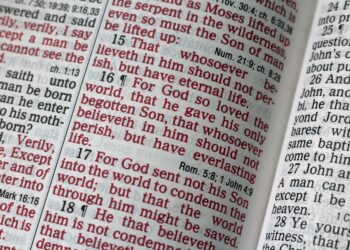Religion has played a significant role in shaping human societies and cultures throughout history. One of the key distinctions in the study of religion is the difference between monotheistic and polytheistic religions. These two categories represent two fundamentally different ways of understanding and relating to the divine. In this blog post, we will explore the key differences between monotheistic and polytheistic religions, as well as some of the implications of these differences for the individuals and societies that practice them.
The most fundamental difference between monotheistic and polytheistic religions is the number of divine beings that are worshipped. In monotheistic religions, there is only one supreme being that is worshipped as the ultimate source of all existence. This one God is believed to be transcendent, omniscient, omnipotent, and all-loving. Examples of monotheistic religions include Christianity, Islam, and Judaism.
On the other hand, polytheistic religions involve the worship of multiple deities, each of which represents a different aspect of the natural world or human experience. In polytheistic religions, there is often a pantheon of gods and goddesses, each with their own powers and characteristics. Examples of polytheistic religions include Hinduism, ancient Greek and Roman religions, and various indigenous belief systems.
The theological implications of monotheism and polytheism are significant. In monotheistic religions, the emphasis is on the unity and singularity of the divine. The one God is seen as the ultimate source of morality, truth, and meaning, and believers are called to submit to the will of this God. In contrast, in polytheistic religions, the emphasis is on the diversity and plurality of the divine. Each deity represents a different aspect of the natural or human world, and believers may worship different gods for different purposes.
Another key difference between monotheistic and polytheistic religions is the nature of the relationship between the divine and humanity. In monotheistic religions, God is often seen as a personal, loving, and involved deity who cares for and guides his creation. Believers are called to have a personal relationship with God through prayer, worship, and ethical behavior. In polytheistic religions, the relationship between humans and gods is often more transactional or impersonal. Each deity may have specific rituals or offerings that must be performed in order to gain their favor or protection.
The moral implications of monotheism and polytheism are also worth considering. In monotheistic religions, there is often a strong emphasis on monotheism’s moral and ethical obligations as defined by the one God. The Ten Commandments in Judaism and Christianity and the Five Pillars of Islam are examples of the moral codes that believers are called to follow. In polytheistic religions, morality may be more flexible or diverse, as different deities may have different standards of behavior.
The differences between monotheistic and polytheistic religions can also have social and political implications. Monotheistic religions, with their emphasis on a single universal truth and morality, have historically been more prone to conflict and proselytism. Monotheistic religions have been responsible for many conflicts throughout history, as believers have sought to convert or conquer those who do not share their beliefs. In contrast, polytheistic religions, with their more pluralistic and diverse understanding of the divine, have often been more tolerant of other beliefs and practices.
In conclusion, the differences between monotheistic and polytheistic religions are profound and far-reaching. These differences have implications for theology, ethics, politics, and society. Understanding the distinctions between monotheism and polytheism can help us to appreciate the diversity of human religious experience and to cultivate greater understanding and respect for those whose beliefs differ from our own. Ultimately, whether one follows a monotheistic or polytheistic religion, the key is to seek truth, meaning, and connection with the divine in whatever way speaks to our hearts and souls.













